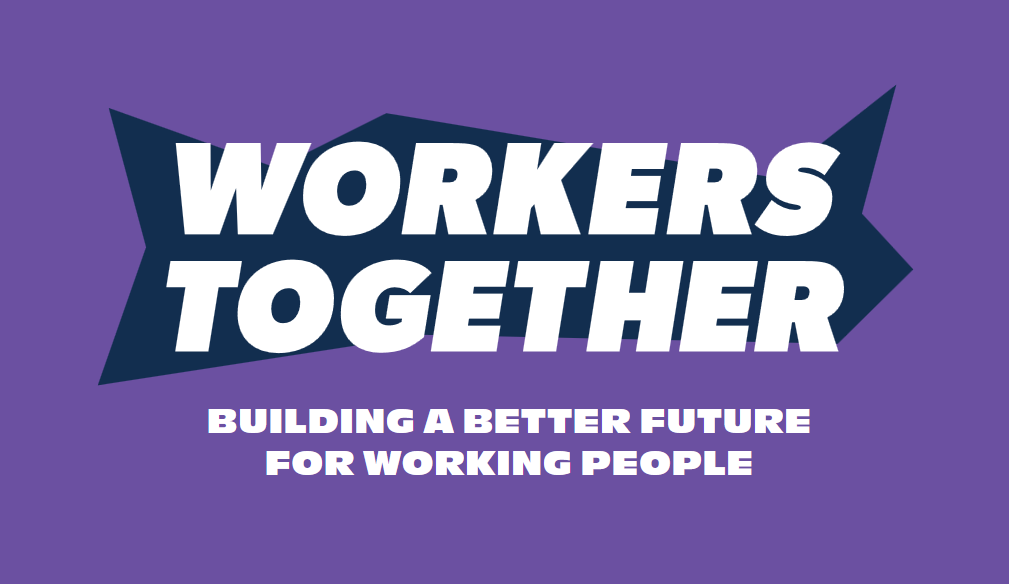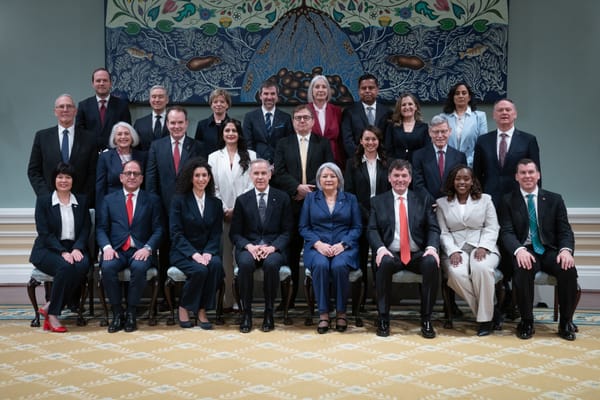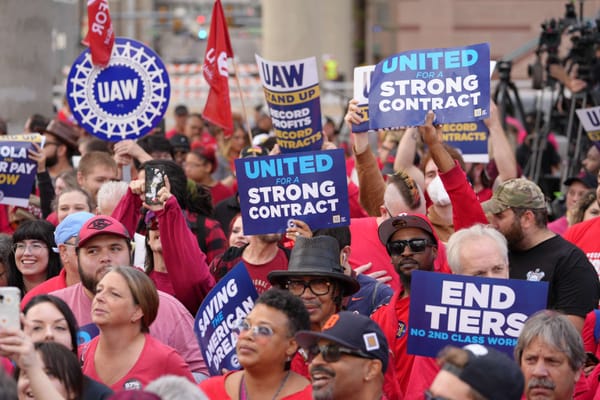
It seems that nearly every corporation and small business purports to be concerned about social, environmental or political issues these days. Indeed, it’s now rare to encounter a business, large or small, that doesn’t also claim a social mission. Many capitalists would have us believe that they’re no longer solely profit maximizers, but also forces for progressive change.
But there’s one area of social concern where firms seem to draw the line: the right of their workers to form unions.
Over the past couple of years, we’ve seen case after case where companies that brand themselves as “progressive” engaged in union-busting. When this happens, there are invariably a slew of articles detailing the bosses’ underhanded tactics and pointing out the glaring hypocrisy between purporting to be socially enlightened, ethical businesses and attempting to prevent workers from organizing unions.
But this shouldn’t surprise us. Workers’ rights to free association and collective bargaining are fundamentally distinct issues for one important reason: unions challenge the bosses’ unilateral power at work. That’s why even the most supposedly progressive employers often pull out all the stops to fight them.
This week, I’ve compiled some of the worst recent examples. The broad lesson here is simple: don’t be fooled by “social justice” branding; workers need their own base of independent power in a union.
The dynamic of “progressive” union-busting can take a number of forms. For example, the close personal relationships at a small business can make unionization especially risky, and this is amplified when the company in question claims to be operating to meet some broader political or ethical objective.
Take the example of No Evil Foods, a vegan faux-meat producer from North Carolina. Early last year, workers at No Evil attempted to unionize the company’s Weaverville plant with the United Food and Commercial Workers (UFCW) union. No Evil, despite branding itself as a progressive company, engaged in many of the same tactics and employed much of the same anti-union rhetoric typical of large businesses who resist their workers’ organizing.
The owners forced workers to attend captive audience meetings, encouraged workers to vote against the union and later fired lead organizers under dubious pretexts, such as failing to follow social distancing guidelines and wearing pants that were “too short.” Most notably, the company even hired a law firm specializing in union avoidance.
Parroting standard anti-union talking points, No Evil’s owners told its employees that a union would be a third party between workers and management, and might prevent the boss from firing those guilty of sexual harassment. They further attempted to paint the UFCW as a corrupt organization that, as a “meatpacking union,” was actually an opponent of the company’s vegan principles.
No Evil ultimately fired at least five workers involved in the organizing drive, and was successful in preventing the unionization. The UFCW lost the National Labor Relations Board election 43-15. A spokesperson for the company later claimed that workers voted “no” because “they trust the vegan founders, who provide a progressive culture, verified living wages, excellent benefits and a mission to provide consumers with plant-based options to improve their health and help end corporate cruelty to animals.”
A company that states its mission is to “put more good into the world,” and which earned a “living wage certification” from Just Economics of Western North Carolina, had no qualms with carrying out an intense anti-union offensive.
A similar anti-union backlash took place at the popular vegan donut company, Donut Friend, in Los Angeles this year.
Workers were fired after attempting to organize a union in response to what they described as the company’s poor handling of COVID-19 as well as other long-standing issues with pay, scheduling and working conditions. Many current and former workers have since formed Donut Friend United, and are now organizing with the Democratic Socialists of America, Los Angeles chapter in an effort to stop company interference with the ongoing unionization effort.
The tendency to combine a progressive social brand with anti-unionism is by no means confined to small firms. It is noticeable also among grocery retailers.
Whole Foods is perhaps the prototypical example in this sector. Co-founded by the outspoken libertarian and Medicare opponent, John Mackey, the company has long tailored itself to the “conscious consumer” while also subjecting its workers to anti-union propaganda. Last year, the now Amazon-owned grocer was reported to be using heat mapping technology to track its employees under the assumption that gathering collectively poses a union risk.
Similarly, in March of last year, the United States grocery retailer Trader Joe’s responded to workers organizing for adequate personal protection equipment and hazard pay by issuing a series of anti-union letters and memos to employees. This was by no means an isolated incident, but rather the latest in the company’s long effort to suppress union organizing. Trader Joe’s also maintains a commitment to socially responsible food sourcing, which doesn’t seem to prevent it from stymieing its own workers’ free association rights.
“Socially responsible union-busters” are by no means solely an American phenomenon either. In a Canadian example, Lush has also been engaged in an anti-union battle against the Service Employees International Union (SEIU) affiliate, Workers United Canada Council and workers at its Toronto-area distribution facilities.
Lush, which brands itself as a socially conscious corporation concerned about animal rights issues and ethically sourcing its product ingredients, came under fire last November when it distributed anti-union messages to its Toronto-area warehouse workers and then posted these messages on the “Hive,” the company’s internal portal for employees across North America.
In the messages, Lush’s executive vice president, Peter Higgins, referred to unions as “a business,” claiming that “they take money away from every employee’s paycheck.”
The U.S. National Labor Relations Board later found Lush to have committed unfair labour practices by intimidating a retail worker in San Francisco who had posted pro-union messages on Hive in support of the organizing drive in Toronto.
Lush explicitly cites “fair working conditions” as a key consideration in its ethical buying practices around the world. Apparently for Lush, “fairness” does not encompass allowing workers in their North American facilities and retail stores to form unions free from company coercion and intimidation.
In response to the company’s anti-unionism, retail, production and distribution centre workers at Lush from Canada, the U.S. and Australia have been meeting virtually and discussing organizing efforts. These workers have launched the Lush Global Union, which has started a petition demanding that Lush refrain from anti-union activities and respect workers’ free association rights.
On Canada’s west coast, workers at Mountain Equipment Co-op (MEC) in Vancouver and Victoria faced their own set of challenges when organizing bargaining units with the UFCW.
MEC, which claims to source its apparel and other items from manufacturers “with high standards for social responsibility and environmental conditions,” first tried to prevent workers at its flagship store in Vancouver from forming a union in April 2019 and then repeated the campaign when workers in Victoria attempted to join the bargaining unit later in the year.
Workers in Victoria alleged that the outdoor sports retailer engaged in an “assertive and aggressive” campaign of “scare tactics” to dissuade workers from unionizing. Deploying a familiar union avoidance tactic, MEC claimed it was facing financial difficulties and that unionization could place the future of the company in jeopardy. MEC management then intimated to employees that a vote to unionize could result in a strike.
Ultimately, the Victoria MEC workers successfully certified with the UFCW in mid-November, bringing the Victoria and Vancouver stores into the same bargaining unit. Following these certifications, MEC implemented wage increases across Canada and then, after mediation, made further wage increases for its B.C. employees.
One further example from the world of Silicon Valley is also instructive. Kickstarter, the crowdfunding company, which often serves as a space for seeding various social justice-focused campaigns, also attempted to prevent its workers from organizing a union in 2019.
Workers at Kickstarter first publicly announced their effort to unionize with the Office and Professional Employees International Union in March 2019. Kickstarter was openly hostile to the organizing campaign and fired prominent organizers.
Workers at Kickstarter were eventually able to certify their union, and were further vindicated when the National Labor Relations Board later determined that Kickstarter had engaged in unfair labour practices by firing employees who engaged in union activity.
Before this, Kickstarter had attempted to brand itself as a progressive workplace distinct from other Silicon Valley tech companies. The crowdfunder even registered as a “public benefit corporation,” which requires its board of directors to consider the impacts of business decisions on the broader public. The company had also been vocal about other progressive causes, such as net neutrality and trans rights. Somehow, yet again, labour rights weren’t a consideration.
These, and countless other, examples strongly indicate that progressive messaging from businesses, large and small, doesn’t preclude aggressive efforts to squash union organizing.
Even among businesses that commit to prioritizing “fair working conditions” in their supply chains, such concerns for labour almost never translate into respecting the free association rights of their own employees. Claiming to “source” from “fair workplaces” seems to be entirely compatible with attempting to prevent workers from forming independent trade unions.
Many businesses will be willing to provide “fair working conditions” so long as employers retain total control over setting wages and determining the conditions of work. But allowing bosses to determine “fairness” is no stand-in for collective bargaining.
When workers form unions, they introduce a level of freedom and autonomy into the employment relationship. Unionized workers confront the boss as an organized and independent force, creating the space to democratically determine what “fairness” at work looks like.
That’s why most bosses hate unions so much. And that’s why they are vital.






